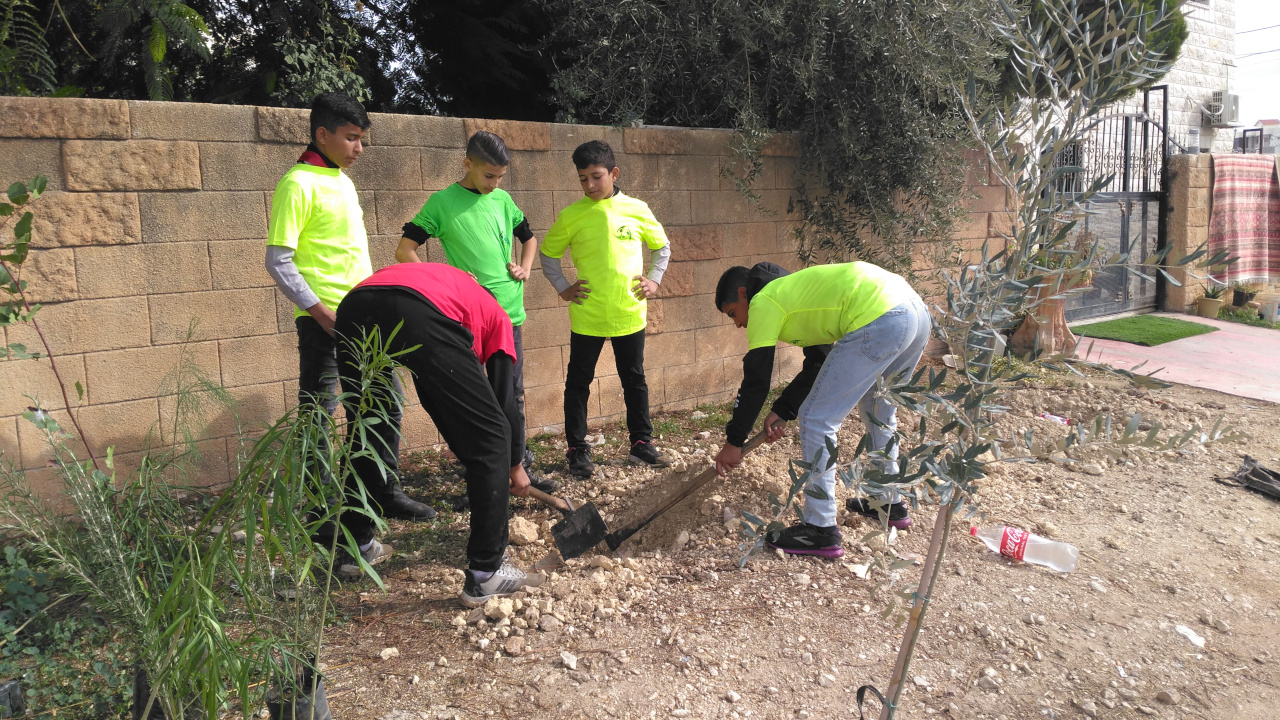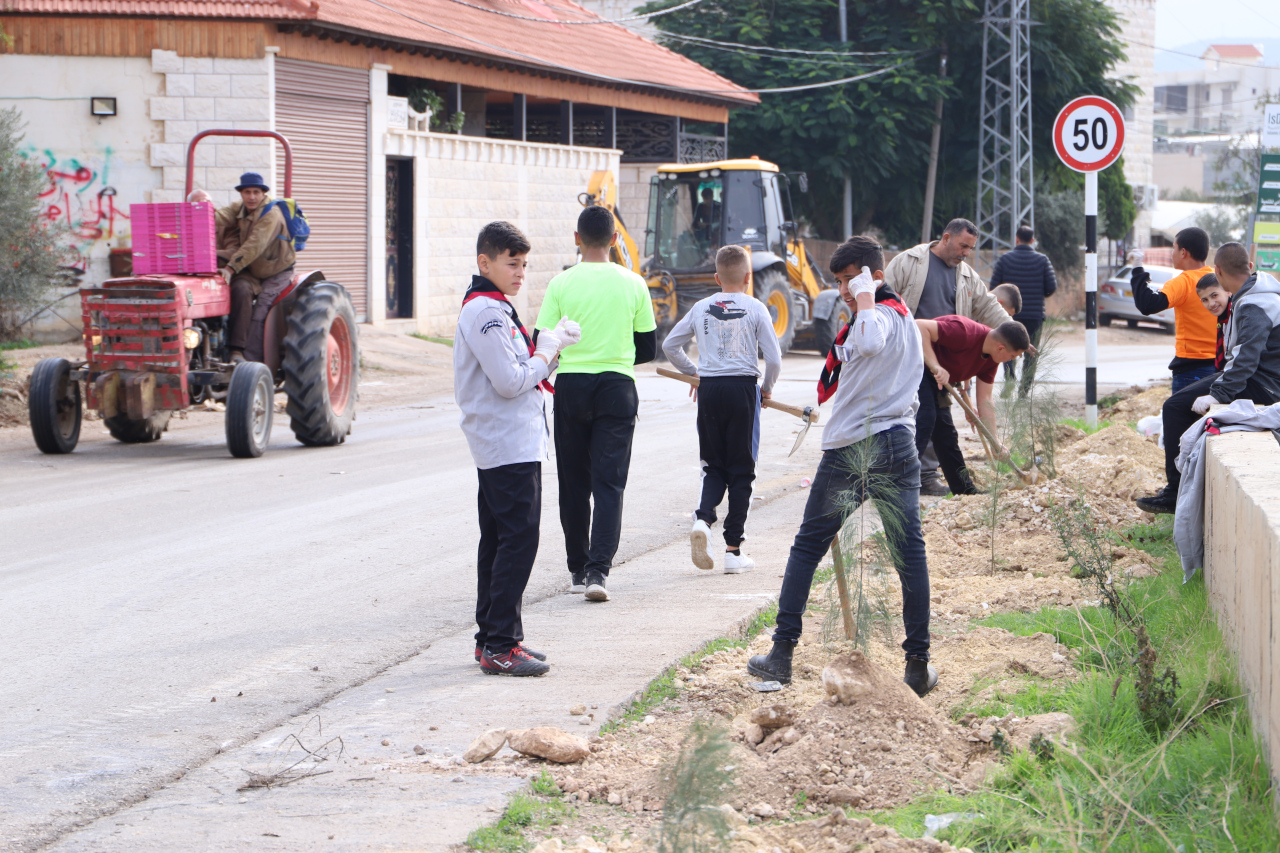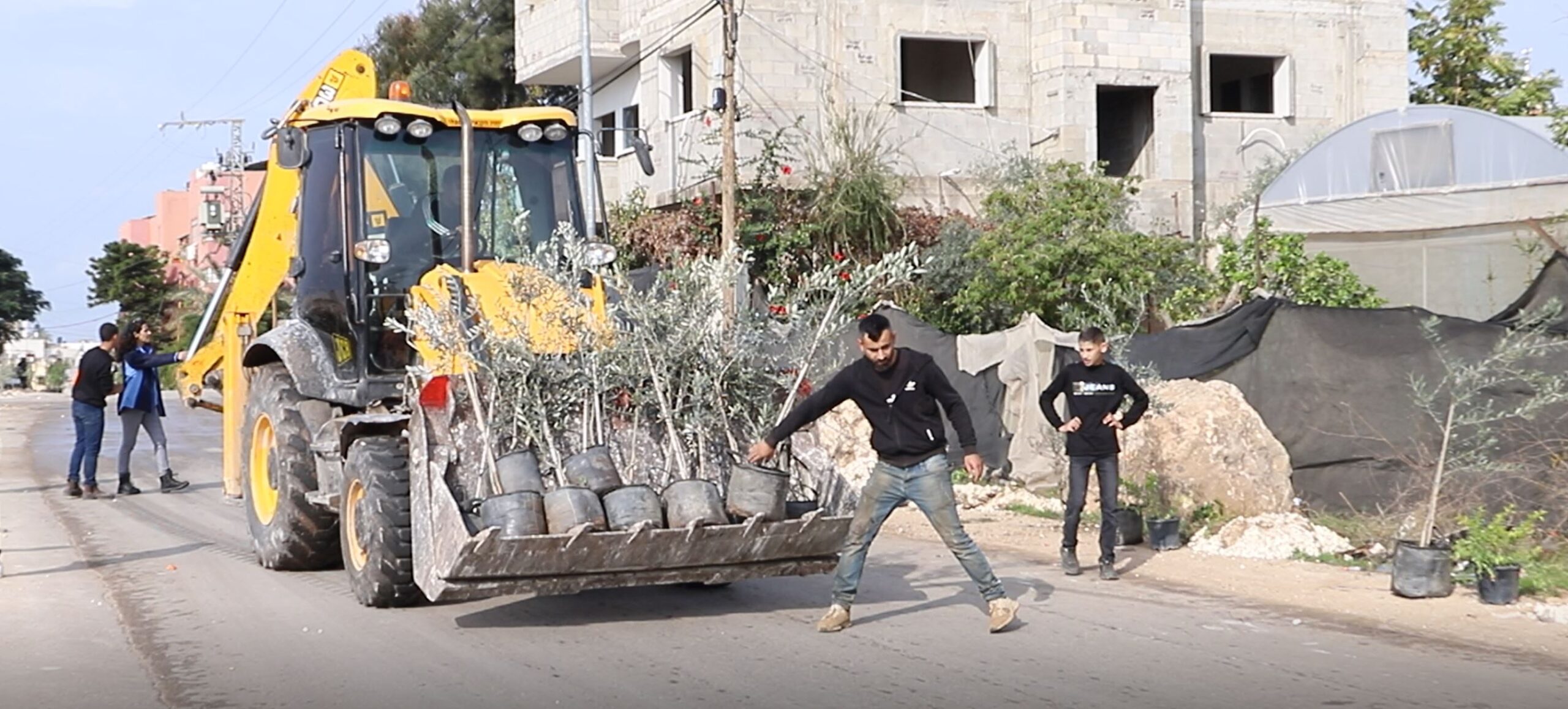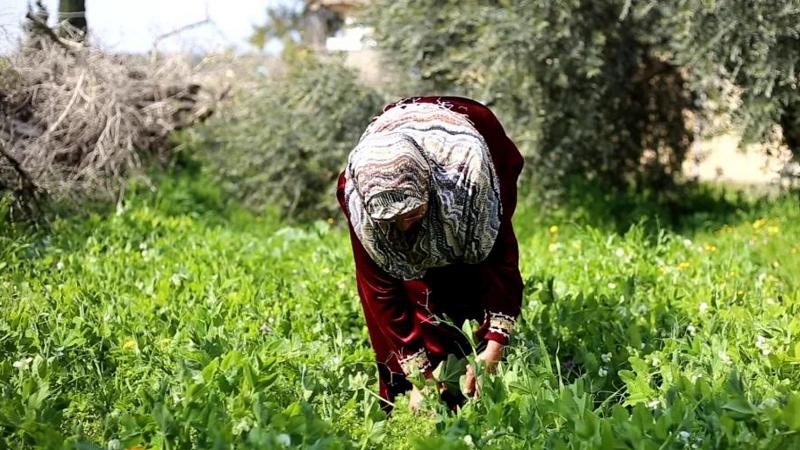Masar – The Great Green Ribbon
Many of us have heard of the Great Green Wall project. A tree planting initiative across the Sahel, planned to slow down the southerly spread of the Sahara desert. Masar – The Great Green Ribbon is a younger and lesser known initiative currently taking place in the Palestinian West Bank.
The Great Green Ribbon known in Palestine as ‘Masar’ – the path or spiritual journey will be a spiders web of trees making up numerous avenues stretching from Tulkarm to Jenin and beyond.
Working in close collaboration with Palestinian partners it took three years of planning to obtain agreement from landowners, municipal councils, agricultural and local volunteer groups. Over the three years a tree nursery has been established using locally gathered seeds. It is believed that local seeds will have the necessary genetic traits to establish themselves successfully in the semi-arid conditions. Provenance is important. Species selection has been considered carefully partly because of the susceptibility of certain trees to diseases.
Food sovereignty is a massive challenge in Palestine where all imports are carefully controlled by Israel. Species have been selected to partly address this and include a mixture of pine, cherry, fig opuntia, Plum, Almond, Nebali Olive and Nablus cacti.
Olive and certain fruit trees are the symbols of peace and steadfastness in Palestine. Years of conflict has witnessed their deliberate destruction in an attempt to break the connection between farmers and their land. Planting and the longevity of many species can reforge this connection. Communities are deeply aware of this and efforts such as Masar can take on a significance far greater than simply growing trees.
Life under occupation in the West Bank is indescribably tough. Huge tracks of land are divided by settlements, movement is always complicated, trade with the outside world is utterly restricted, opportunities few and far between and then there’s the partition wall. It is little surprise therefore that an overwhelming sense of loss and helplessness has fallen upon many communities. Infrastructure is poor, there are few waste disposal facilities and unemployment rates are sky high.
Preparation for planting has been a massive undertaking. Over 200 tons of rubbish had to be removed from the first mile of planting and the nearest waste disposal unit was over 30 miles away. People were initially suspicious and wanted to be reassured that our volunteers were not collaborators, but eventually in November 2022 in dry and difficult terrain the first trees were planted. A small stand of fruit and olives winding its delicate way through a small village. Emotions ran high and tears of hope stained the faces of several participants. Women and children brought out buckets of water and a sense of ownership became apparent. Families promised to protect and cherish the saplings. Within days they had become symbols of longevity and glimmers of hope. More trees were planted and more people wanted to be involved. The 75 metres through the village was lengthened and by early December Masar was a mile in length and had reached the neighbouring community.
Still in its infancy it was touching the needs of the people and attracting an inordinate amount of attention. Village elders were approaching us asking if their communities could be included and Scout groups , women’s groups and school parties were becoming involved. At times there was conflict regarding the planting of trees in one area as opposed to another but this is becoming a positive driver of change. It is bringing people together around a common cause and sparking enthusiasm for collaborative action. The project was never supposed to be political but it was making a statement, one of ownership, empowerment, hope and positivity.
All this in a country that has been brutalised and bullied for generations.
This has been described as the most positive initiative in the West Bank and all through the love of trees.
Abuamsha, R., Abueid, M., Hajjeh, H., & Salman, M. (2013). Evaluation of the Incidence and Severity of Olive Leaf Spot caused by Spilocaea oleagina in different olive cultivars in Palestine. Journal of Agriculture and Environment for International Development (JAEID), 107(2), 201-212. https://doi.org/10.12895/jaeid.20132.138
J. Hughes (2008) CONFISCATION AND DELIBERATE DESTRUCTION OF OLIVE TREES IN THE WEST BANK AND GAZA AND THE EFFECT OF THIS ON THE PALESTINIAN ECONOMY, Arboricultural Journal, 31:2, 87-95, DOI: 10.1080/03071375.2008.9747524
Rotenberg, E., Qubaja, R., Preisler, Y., Yakir, D., Tatarinov, F. (2021). Carbon and Energy Balance of Dry Mediterranean Pine Forests: A Case Study. In: Ne’eman, G., Osem, Y. (eds) Pines and Their Mixed Forest Ecosystems in the Mediterranean Basin. Managing Forest Ecosystems, vol 38. Springer, Cham. https://doi.org/10.1007/978-3-030-63625-8_14
Donate here: https://gapart.org.uk/donations-costs/





